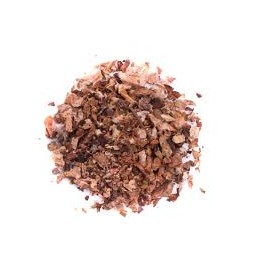
Reference: Indian gooseberry / Amla
Banner



Rhodiola rosea, also known as Arctic root or golden root, is a plant from the Crassulaceae family that thrives in cold climate regions such as mountains, tundras, and taigas. It is renowned for its adaptogenic properties and has been used for centuries in traditional Asian and Scandinavian medicine. Rhodiola rosea is gaining popularity among individuals seeking natural methods to enhance physical and mental well-being. Rhodiola rosea possesses several unique characteristics. It exhibits resilience to harsh environmental conditions and can survive extreme temperatures and high-altitude terrains. Its roots and rhizomes contain bioactive compounds such as salidroside, flavonoids, and polyphenols, which are responsible for its health benefits.
Rhodiola rosea is commonly used as an adaptogen, assisting the body in adapting to physical, emotional, and environmental stressors. It has the potential to enhance immune function, increase energy and endurance, improve cognitive function, and stabilize mood.
 Security policy
Security policy
(edit with the Customer Reassurance module)
 Delivery policy
Delivery policy
(edit with the Customer Reassurance module)
 Return policy
Return policy
(edit with the Customer Reassurance module)
 Rhodiola rosea, other known names include:
Rhodiola rosea, other known names include:
 1. What is Rhodiola rosea and what are its properties ?
1. What is Rhodiola rosea and what are its properties ?
Rhodiola rosea, also known as mountain rose, is a plant from the family Crassulaceae, naturally found in mountainous regions of Asia, Europe, and North America. It has been used for centuries in folk medicine due to its adaptogenic, antioxidant, and anti-inflammatory properties. Rhodiola rosea contains compounds such as salidroside, rosavin, and rosarin, which have beneficial effects on the body. Research has shown that Rhodiola rosea can help reduce stress, improve mood, and enhance physical performance. These properties make it a commonly used dietary supplement or herbal ingredient. Rhodiola rosea increases the production of serotonin and dopamine, contributing to improved mood and reduced feelings of anxiety and depression. Additionally, it helps reduce stress by influencing the level of cortisol, a stress hormone, and decreasing its production. Rhodiola rosea also has anti-inflammatory and antioxidant effects, which means it can help protect cells from damage caused by free radicals and prevent inflammatory conditions in the body.
Considering that Rhodiola rosea can affect various aspects of health, it is worth considering its use as a natural way to enhance physical and mental performance, reduce stress, and improve well-being. However, it is important to consult a healthcare professional before using it, especially if the individual is taking any medications or has any medical conditions.
 2. What are the active substances present in Rhodiola rosea and how do they affect the body ?
2. What are the active substances present in Rhodiola rosea and how do they affect the body ?
Rhodiola rosea contains several active substances, including salidroside, rosavins, tyrosol, and rosarin. Salidroside is considered one of the most important active compounds in this plant. It has antioxidant, anti-inflammatory, and neuroprotective properties. Rosavins, on the other hand, are associated with improved cognitive function, reduction of depressive symptoms, and increased physical performance. The active substances in Rhodiola rosea affect the body by regulating the nervous and hormonal systems. Rhodiola rosea is considered an adaptogen, meaning it helps the body cope with stress and reduces the effects of stress on the body. The adaptogenic action of Rhodiola rosea is attributed to its influence on the HPA (hypothalamic-pituitary-adrenal) axis and the levels of cortisol and adrenaline. Rhodiola rosea may also affect the body's energy metabolism by increasing the utilization of oxygen by cells and improving mitochondrial function. It also influences the immune system by increasing the number of immune cells, such as lymphocytes. All these properties of Rhodiola rosea make it a popular adaptogenic herb used to improve cognitive function, reduce depressive symptoms, enhance physical performance, and manage stress."
 3. What diseases and ailments can be treated with Rhodiola rosea ?
3. What diseases and ailments can be treated with Rhodiola rosea ?
Rhodiola rosea is known for its wide range of medicinal properties. The active substances present in it affect various systems in the body, allowing it to be used in the treatment of many diseases and ailments. One of the main applications of Rhodiola rosea is in combating the symptoms of stress. Thanks to its adaptogenic properties, it regulates cortisol levels and helps the body cope with the negative effects of stress. Therefore, it may aid in the treatment of nervous system disorders such as anxiety, depression, phobias, and insomnia. Rhodiola rosea also has antioxidant properties, which means it can help protect the body against free radicals and age-related diseases such as heart disease, Alzheimer's disease, and Parkinson's disease. The compounds present in Rhodiola rosea also influence the circulatory system, which can assist in the treatment of heart diseases, arterial hypertension, and atherosclerosis. It may also help regulate blood sugar levels and improve metabolism, making it beneficial in the treatment of type 2 diabetes. Rhodiola rosea also exhibits anticancer and anti-inflammatory properties, which can aid in the treatment of cancer and inflammatory conditions such as rheumatoid arthritis and autoimmune diseases.
Other diseases, ailments, and health issues that can be treated with Rhodiola rosea include low mood, fatigue, erectile dysfunction, infertility, lung diseases, urinary tract infections, digestive disorders, and overweight. However, it is important to remember that before using Rhodiola rosea for medicinal purposes, it is advisable to consult a doctor.
 4. What are the recommended doses and methods of using Rhodiola rosea ?
4. What are the recommended doses and methods of using Rhodiola rosea ?
Rhodiola rosea, like most dietary supplements, does not have specified doses that are suitable for everyone. The recommended dose of Rhodiola rosea depends on various factors, including the purpose of use, age, weight, overall health, and any existing conditions.
For improving physical performance and reducing fatigue, it is usually recommended to take 200-600 mg of Rhodiola rosea extract per day. For cognitive enhancement and stress reduction, the recommended doses are typically 200-400 mg of extract per day.
It is recommended to start with lower doses and gradually increase them to the recommended level. It is also advisable to consult a doctor before using Rhodiola rosea, especially if already taking medications or having any chronic conditions. Rhodiola rosea can be used in various forms, including capsules, tablets, liquids, powders, and teas. Regardless of the form, it is important to follow the dosage and usage instructions provided on the packaging or as recommended by a specialist.
 5. What are the contraindications and possible side effects associated with the use of Rhodiola rosea ?
5. What are the contraindications and possible side effects associated with the use of Rhodiola rosea ?
Rhodiola rosea is generally considered a safe dietary supplement, but like any other supplement or medication, it can have side effects and interactions with other drugs or supplements. There are also certain contraindications to consider before starting to use Rhodiola rosea. Firstly, individuals with arterial hypertension should exercise caution when using Rhodiola rosea, as it may lower blood pressure. Individuals with diabetes or hypoglycemia should also avoid using Rhodiola rosea, as it may affect blood sugar levels. Those with thyroid disorders should consult a doctor before using Rhodiola rosea, as it may influence thyroid hormone levels. Other possible side effects of Rhodiola rosea include headaches, nausea, diarrhea, digestive problems, and insomnia. Prolonged use of Rhodiola rosea in high doses may lead to fatigue, muscle weakness, and affect sex hormone levels. Individuals taking antidepressant medications, anticonvulsants, anticoagulants, or heart disease medications should consult a doctor before using Rhodiola rosea, as it may affect the effectiveness of the drugs or lead to interactions. All these considerations should be taken into account before starting to use Rhodiola rosea, and in case of any doubts, it is advisable to consult a doctor.
![]() 6. Can Rhodiola rosea be used by children, pregnant women, and breastfeeding women ?
6. Can Rhodiola rosea be used by children, pregnant women, and breastfeeding women ?
There is insufficient scientific research to confirm the safety of using Rhodiola rosea in children, pregnant women, and breastfeeding women. Therefore, it is not recommended to use this plant for these groups of people. For pregnant and breastfeeding women, there is a lack of studies that have demonstrated the negative effects of Rhodiola rosea on the health of the mother and child. However, it is advisable for these individuals to consult a doctor or pharmacist before using Rhodiola rosea in any form. Regarding children, there is insufficient research to confirm the effectiveness and safety of using Rhodiola rosea in children. Therefore, it is not recommended to use this plant in children without consulting a doctor.
 7. What are the differences between various forms of Rhodiola rosea, such as extract, capsules, or tea ?
7. What are the differences between various forms of Rhodiola rosea, such as extract, capsules, or tea ?
Rhodiola rosea is available in various forms, and each may have slightly different composition and mode of action. Rhodiola rosea extract is the most commonly used form as it contains the highest concentration of active compounds. Rhodiola rosea extract is usually standardized to the content of salidroside, which is considered the most important component of this plant. Rhodiola rosea extract is typically sold in the form of capsules or tablets. Rhodiola rosea capsules are an easy way to consume this dietary supplement. Rhodiola rosea capsules usually contain extract from the plant's root, and the dosage is typically standardized, ranging from 200 to 500 mg per capsule. Rhodiola rosea tea is another way to consume this plant. Rhodiola rosea tea is usually prepared from dried roots of the plant and may have a milder effect compared to Rhodiola rosea extract. There are also products where Rhodiola rosea is one of many ingredients, such as supplements for athletes or herbal blends. In any form of Rhodiola rosea dietary supplement, there is a risk of experiencing adverse effects. Therefore, it is always recommended to consult a doctor or pharmacist before starting Rhodiola rosea supplementation.
 8. What are the cultivation and farming methods of Rhodiola rosea ?
8. What are the cultivation and farming methods of Rhodiola rosea ?
Rhodiola rosea, commonly known as "golden root," is a plant that grows wild in various regions worldwide, including Europe, Asia, and North America. Due to its beneficial properties, this plant is increasingly being cultivated under controlled conditions to ensure high quality and yield. The cultivation and farming methods of Rhodiola rosea vary depending on climatic and soil conditions. This plant prefers a cool and moist environment, making it best suited for mountainous regions at elevations ranging from 800 to 2000 meters above sea level. The ideal soils for Rhodiola rosea cultivation are well-drained, moist, and rich in nutrients.
There are two main cultivation methods for Rhodiola rosea: from seeds and from seedlings. Seed cultivation is challenging and time-consuming as the plant requires specialized conditions for germination and growth. Therefore, most Rhodiola rosea plantations are established using seedlings. The plant is typically grown in greenhouses or open fields, depending on the region and climate. Various techniques are employed during Rhodiola rosea cultivation, such as the use of organic and chemical fertilizers, plant protection against diseases and pests, as well as proper irrigation and protection from excessive sunlight.
After harvesting, Rhodiola rosea roots are dried and stored in dry, shaded, and cool places to preserve their active compounds and medicinal properties. Through proper cultivation and farming, Rhodiola rosea can be made available as a natural dietary supplement, providing beneficial effects for health and well-being.
 9. What are the guidelines for safe purchase of Rhodiola rosea, and where can it be bought ?
9. What are the guidelines for safe purchase of Rhodiola rosea, and where can it be bought ?
Rhodiola rosea is a plant with significant adaptogenic properties, which attracts the attention of consumers and dietary supplement manufacturers. However, similar to other dietary supplements, there are certain guidelines to follow when making a purchase to ensure safety and product quality. The first guideline is to purchase Rhodiola rosea only from reputable manufacturers and sellers. This ensures that the product meets quality requirements and is safe for consumption. It is also worth checking whether the manufacturer has certifications confirming the quality and safety of their products. Another important guideline is to read labels and product descriptions. Pay attention to the ingredients, dosage, storage instructions, and expiration date. For Rhodiola rosea dietary supplements, they should indicate the content of standardized Rhodiola rosea root extract, specifying the amount of active substances. Choosing the appropriate form of the product is another crucial consideration. Rhodiola rosea is available in various forms, such as extracts, capsules, tea, or syrup. The choice of form depends on individual preferences and needs, but attention should be given to the content of active substances and recommended dosage. Rhodiola rosea can be purchased in many dietary supplement stores and pharmacies. Before making a purchase, it is advisable to check the reviews from other consumers and compare prices of different products. Additionally, pay attention to the storage conditions of the product, such as temperature and humidity.
In conclusion, the purchase of Rhodiola rosea should be made from reputable manufacturers and sellers, paying attention to labels, ingredients, form of the product, and reviews from other consumers. Following these guidelines ensures the purchase of a safe and high-quality product that will effectively improve health and well-being.
 STORAGE
STORAGE
To maintain the freshness and effectiveness of Rhodiola rosea, it should be stored properly. For dried roots, they should be kept in an airtight container in a dry and cool place, away from light and moisture. As for Rhodiola rosea extract, it is recommended to store it in its original packaging or an airtight container made of dark glass. It is also important to keep the product away from heat sources and sunlight. When it comes to Rhodiola rosea capsules, they should be stored in their original packaging or an airtight container in a dry and cool place. Avoid storing them in areas with high humidity, heat, or sunlight. For liquid forms of Rhodiola rosea, such as tinctures, it is recommended to store them in a dark glass bottle in a dry and cool place. After opening the bottle, it should be stored in the refrigerator. All forms of Rhodiola rosea should be kept out of reach of children. It is also important to use products only from reputable sources and properly dated packaging to avoid using expired or low-quality products.
 The research studies were conducted by:
The research studies were conducted by:
 Scientific Sources:
Scientific Sources:

Thank you for your interest in our herbal website! We appreciate your recognition of our work and effort in creating valuable content. If you would like to share our information on your website, we encourage you to do so. However, please respect our copyright and do not copy the content without our permission.
If you wish to share our website, you can always provide a link that leads to our page. This not only helps maintain the integrity of our work but also allows your readers to discover more valuable information about herbs.
Thank you for understanding and supporting! If you have any questions or need further information, please don't hesitate to contact us.
Reference: Indian gooseberry / Amla
Reference: Smilax officinalis
Reference: Cat's Claw
Reference: 5-hydroksytryptofan / 5 HTP
Reference: Catuaba / Erythroxylum catuaba / Trichilia catigua
Reference: Milk thistle
Reference: red sage
Reference: siberian ginseng
Your review appreciation cannot be sent
Report comment
Report sent
Your report cannot be sent
Write your review
Review sent
Your review cannot be sent

Rhodiola rosea, also known as Arctic root or golden root, is a plant from the Crassulaceae family that thrives in cold climate regions such as mountains, tundras, and taigas. It is renowned for its adaptogenic properties and has been used for centuries in traditional Asian and Scandinavian medicine. Rhodiola rosea is gaining popularity among individuals seeking natural methods to enhance physical and mental well-being. Rhodiola rosea possesses several unique characteristics. It exhibits resilience to harsh environmental conditions and can survive extreme temperatures and high-altitude terrains. Its roots and rhizomes contain bioactive compounds such as salidroside, flavonoids, and polyphenols, which are responsible for its health benefits.
Rhodiola rosea is commonly used as an adaptogen, assisting the body in adapting to physical, emotional, and environmental stressors. It has the potential to enhance immune function, increase energy and endurance, improve cognitive function, and stabilize mood.